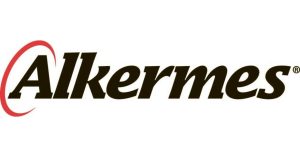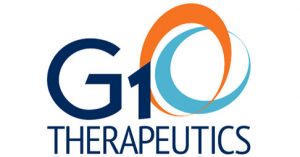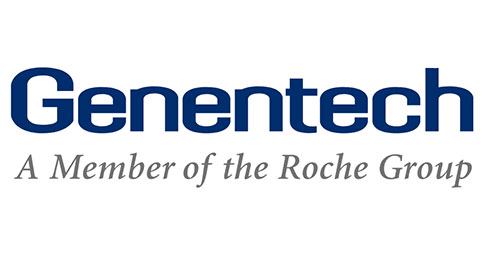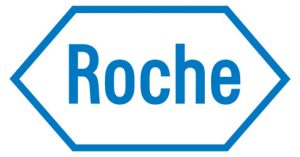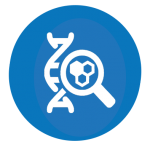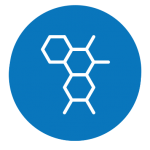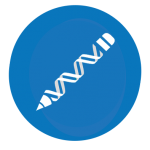Whole exome sequencing (WES), whole genome sequencing (WGS), or single nucleotide polymorphism (SNP) arrays can be used to profile genetic variation across many sites in the genome simultaneously. However, sequence data is often generated on the scale of terabytes which makes it challenging to handle, process, and analyse.
At Fios Genomics, we have workflows and computational resources that can process data generated from most next-generation sequencing (NGS) and array-based technologies at scale. Where necessary, we can also leverage cloud computing for high throughput of large data sets.
What We Offer
We offer a range of genetic variation analysis services to identify genetic variation and associations with clinical outcomes, diseases and phenotypes of interest. These include WGS/ WES analysis to call SNPs or mutations, structural variation calling and analysis (including CNVs), somatic and germline mutation detection and genome-wide association studies (GWAS).
Our genetic variation data analyses may include the following:
WGS/WES sequence alignment, mapping and analysis
- DNA sequences are aligned and mapped to a reference genome for locating genomic positions and identifying variations.
- Whole genome sequencing (WGS) covers an organism’s entire genome, encompassing coding (exons) and non-coding (introns) regions.
- Whole exome sequencing (WES) selectively targets only the coding regions (exons) of the genome.
- Analyses on the aligned and mapped sequences include variant calling, association testing, mutation signature analysis, phasing, and haplotype analysis.
De novo sequencing analysis
When a reference genome is unavailable, the organism’s genome is assembled from scratch for analysis.
Single nucleotide polymorphism (SNP) and small indel variant calling
SNPs and small indels from WGS, WES, or array data can be called and analysed.
Structural variant calling
- Copy Number Variation (CNV) calling to identify variations in gene copy numbers.
- Detection of DNA segment rearrangements, including insertions and deletions (indels), inversions, translocations, and duplications.
Somatic and germline mutation detection
- Identification of germline mutations, which are inherited and often relevant to hereditary diseases or traits.
- Identification of somatic mutations, which can arise during an individual’s lifetime and are commonly associated with cancer.
- Also, mutation detection across multiple data types, including WGS, WES, and array data.
Genome-wide association studies (GWAS)
- Conducting GWAS analysis using client-generated data, such as SNP array data, imputed data, or WGS data, or using data from repositories like UK Biobank.
- These analyses identify genetic variants associated with diseases or traits of interest.
Polygenic risk score analysis (PRS)
We can develop polygenic risk scores which can be used to estimate an individual’s risk of developing a particular disease or trait. For example, PRS can predict an individual’s risk of diseases such as coronary heart disease, diabetes, breast cancer, and Alzheimer’s disease.
Mendelian randomisation analysis
We can perform mendelian randomisation analysis to investigate the causal effect of an exposure (such as a risk factor or treatment) on an outcome (such as a disease or trait) using genetic variants.
Benefits of Working with Fios Genomics
Genomic data can be particularly challenging to work with. Challenges include heterogeneity at both population and cellular levels, detecting contamination and artifacts within the data set, existence of bias and confounding factors. This can be particularly important when performing GWAS in order to minimise false positives. It can also be a challenge to apply to use data resources such as UK Biobank, however, we can help with applications and data analysis.
When you work with us you will benefit from:
Dedicated Bioinformatician
A dedicated bioinformatician, backed by an experienced bioinformatics team, will curate all data, identify the most appropriate statistical approach to take and provide a biological interpretation of results
Interactive Data Analysis Report
Receive a searchable data analysis report that includes interactive visualisations of the data. Our reports are internally peer-reviewed and include analysis methods and results (particularly helpful if you plan to publish your research results)
Post-Report Follow-Up
Upon receipt of our data analysis report, we arrange a review call so that your project’s dedicated bioinformatician can talk you through the results and answer any questions you have about the report
Dedicated Project Manager
Your dedicated Project Manager will act as your single point of contact throughout the project. They will ensure everything from data transfer to report delivery runs smoothly and efficiently for you
Large Capacity Computing
When you choose Fios Genomics, you benefit from our large capacity computing and secure data storage facilities, where we store all your raw data, analysed data and your data analysis report
Genetic Variation Analysis Applications
There are many useful applications of genetic variation data analysis, such as:
Aligning genome sequences, such as whole-genome sequencing (WGS) and whole-exome sequencing (WES) data, to a reference genome, and mapping the aligned reads to specific genomic features or regions within the reference sequence
Aligned sequences can then be used to identify variants such as single nucleotide polymorphisms (SNPs), insertions, deletions, and structural variations.
Assembling an organism’s genome from scratch while no reference genome is available
Quality assessment of de novo sequencing can be challenging due to the lack of reference genome and biological complexity involved. However, it can be incredibly valuable for many applications, including gene discovery, comparative genomics and phylogenetics.
Calling single nucleotide polymorphisms (SNPs) and small indels
SNPs and small indels can be used for genetic variation studies. For example, for GWAS, pharmacogenomic studies such as an individual’s response to a drug, for molecular marker development or for rare variant analysis.
Calling larger structural variants, such as copy number variants
Identified structural variants can help identify genetic factors associated with various diseases. For example, identifying CNVs is crucial for understanding oncogenesis, tumour progression, and identifying potential therapeutic targets. Other analyses can include clinical diagnostics and inheritance pattern analysis.
Detecting somatic and germline mutations
Identified mutations are important for many applications. These include treatment selection, cancer detection, drug response prediction and biomarker discovery, as well as public health investigations such as monitoring vaccine efficacy.
Genome-wide association studies (GWAS)
Performing GWAS can identify genetic associations between variants and traits, diseases, or phenotypes. These can then be used to identify disease risk factors and give insights into diversity and structure of human populations.
Developing polygenic risk scores to give a tool for estimating an individual's risk of developing a disease or trait
- PRS can predict how individuals will respond to specific drugs, identify participants who are more likely to benefit from a treatment and also help tailor treatments based on an individual’s genetic risk.
- They can also be used to identify individuals predisposed to certain illnesses, such as multiple sclerosis.
Performing Mendelian randomisation analyses
MR provides a framework for assessing causal relationships between exposures and outcomes, importantly to distinguish causation from correlation. This reduces the potential for reverse causation and confounding when looking at the association within a relationship.
Our Experience in Genetic Variation Data Analysis
Below is a small selection of projects where we have successfully helped our clients:
- Identifying genetic variants associated with vegetarianism
- Investigation of host immune responses to trypanosomiasis
- Identifying genomic loci associated with disease status
- Identifying SNPs associated with poorer drug response and survival
- Assessment of tumour mutational burden and its association with response to immunotherapy and survival
- Associating copy number variants with cancer cell line gene dependency (CNV Genetics)
- Investigating associations between pharmacokinetic data and genetic variation
- Multivariate analysis across RNAseq and SNP/CNV data, alongside efficacy data from over 800 CRISPR screens
- Also, association of gene expression or mutations that confer sensitivity to CRISPR gene knockout in cell lines of interest.
Our Reports
Our analysis reports come as an HTML link hosted on our secure server. The secure link contains a password-protected HTML document that is clickable, searchable, and dynamic. This format allows you to easily interrogate and explore your data. Our reports always include all analysis methods, tools and thresholds.

Example Genetic Variation Analysis Report
To demonstrate what you can expect from a Fios Genomics genetic variation data analysis report, we have an example report available: Analysis of somatic and copy number variants from Whole Exome Sequencing data in cutaneous squamous cell carcinoma patients. This report describes an analysis of whole exome sequencing (WES) data to characterise the somatic mutations present within different cutaneous squamous cell carcinoma (cSCC) samples. WES data from 33 individuals with cSCC were investigated as part of a study investigating the relationship between COL11A1 and cancer invasiveness. To view this report contact us and ask for our ‘WES’ example report.
Our Testimonials
We found that the package they offered is a very attractive one, compared to other organisations we talked to. Fios provide you with a very nice data package, that is fully interpretable and allows you to draw meaningful conclusions.
Companies We Have Worked With
Request a Quote
Further Information About Genetic Variation Analysis
Quality control is very important when analysing genetic data, particularly when identifying genetic associations in genome-wide studies. We provide the highest level of expertise when assessing data to ensure the production of high-quality results.


